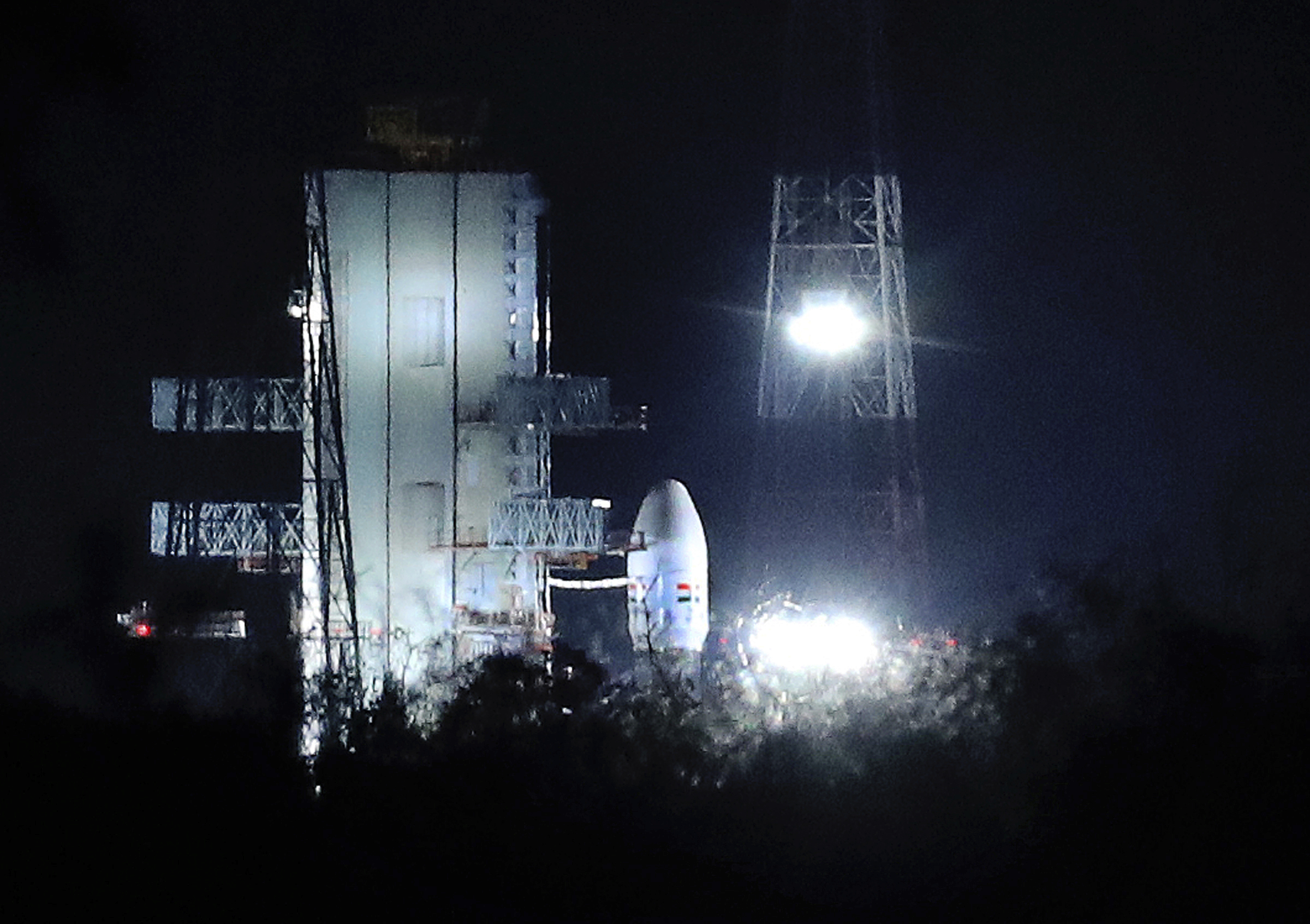
Indian Space Research Organization (ISRO)’s Geosynchronous Satellite launch Vehicle (GSLV) MkIII carrying Chandrayaan-2 stands at Satish Dhawan Space Center after the mission was aborted at the last minute at Sriharikota, in southern India, Monday, July 15, 2019. India has called off the launch of a moon mission to explore the lunar south pole. The Chandrayaan-2 mission was aborted less than an hour before takeoff on Monday. An Indian Space Research Organization spokesman says a “technical snag” was observed in the 640-ton launch-vehicle system. (AP Photo/Manish Swarup)
NEW DELHI — India’s space organization is examining the technical snag behind Monday’s aborted launch of a spacecraft intended to land on the far side of the moon and expects to set a new launch date within days.
The Chandrayaan-2 mission was called off less than an hour before liftoff by the Indian Space Research Organization when a “technical snag” was observed in the 640-ton, 14-story rocket launcher.
Vivek Singh, the ISRO’s media director, said the organization should be able to choose a new launch date within days. He declined to go into details.
Chandrayaan, the Sanskrit word for “moon craft,” is designed to make a soft landing on the lunar south pole and to send a rover to explore water deposits confirmed by a previous orbiting Indian space mission.
Pallava Bagla, science editor of New Delhi Television news channel, said that launch windows have to meet several technical criteria and it could take weeks or months for a new date.
He also said on his channel that the rocket and the satellite were safe, and the highly inflammable liquid hydrogen and liquid oxygen have been removed from the rocket.
The full details of what went wrong will be available when scientists can access the rocket and after a full analysis is done, he said.
Dr. K. Sivan, chairman of the ISRO, said last week that the around $140 million Chandrayaan-2 mission was the nation’s most prestigious to date, in part because of the technical complexities of soft landing on the lunar surface — an event he described as “15 terrifying minutes.”
If India did manage the soft landing, it would be only the fourth country to do so after the U.S., Russia and China. /muf